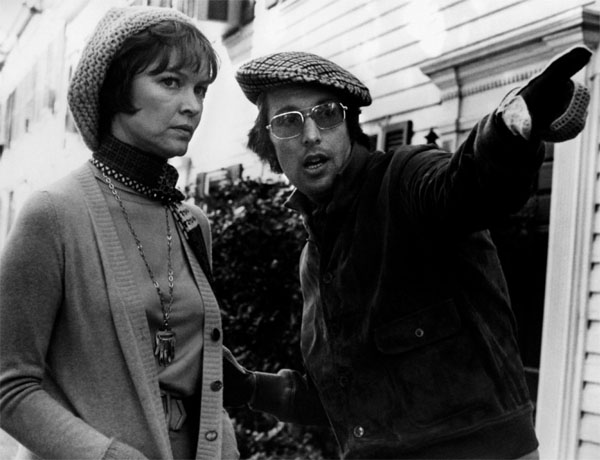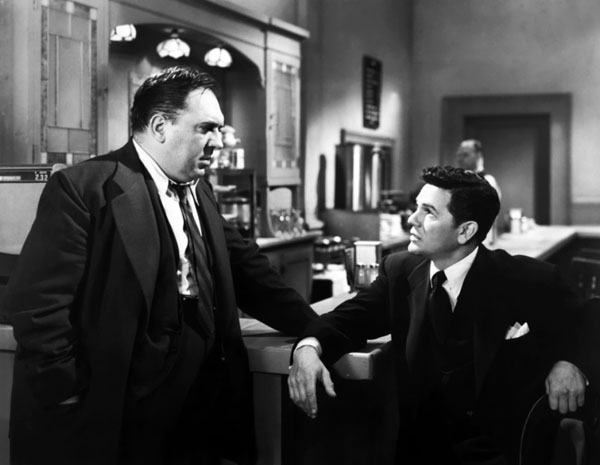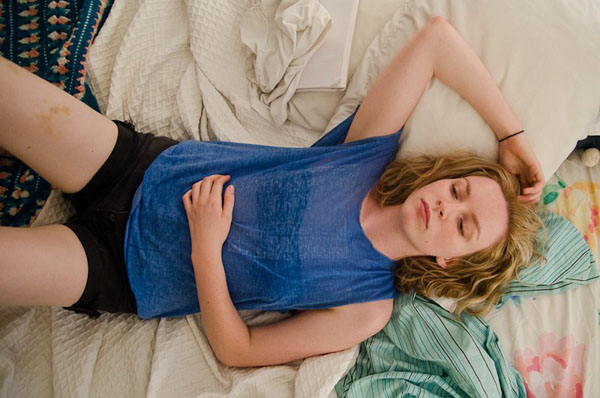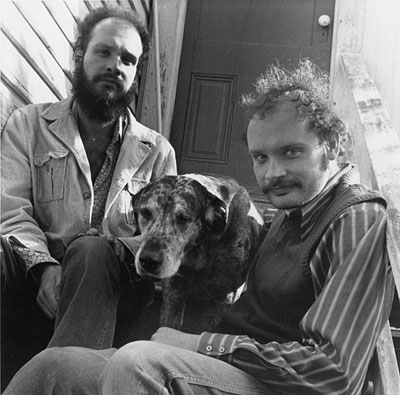William Friedkin’s memoir, The Friedkin Connection, will be out next week, and Paul Teetor, who interviews him for LA Weekly, calls it “compelling reading.” As we saw here in Keyframe last summer, when Eddie Muller spoke with the director about Killer Joe, Friedkin, who’ll turn 78 this summer, doesn’t do your standard press junket interview. He freely admits to Teetor, for example, that turning Steve McQueen down for Sorcerer “was the biggest fuck-up I ever committed.” There’s more of that sort of thing in the conversation, too, but I’m going for this one Q and its A:
The French Connection won the Oscar and The Exorcist didn’t, but The Exorcist became a part of American pop culture. Why?
It resonates with people on a far deeper level because it deals with the mystery of faith. French Connection is a good thriller, a damn good story with interesting characters, but Exorcist is about the mystery of life and faith. Even atheists are interested in that.
More reading. For frieze, Charlie Fox goes off “In Search of Harmony Korine”: “Perhaps his reputation lies in purveying stretches of grotesquerie meant to make you shudder and stare. But they are fascinating, delirious works made from weird passions, entrancing and sinister, woozy and purposefully aimless, their mood pitched between a strange kind of calm and utter lunacy.”
In frieze‘s bilingual German edition, Pablo Larios talks with Tacita Dean about her connection to Swiss writer Robert Walser (1878–1956).
For One+One Filmmakers Journal, Diarmuid Hester posts and discusses a batch of early short films by Shirley Clarke.
Imogen Smith at the Chiseler on Force of Evil (1948), written and directed by Abraham Polonsky, produced by and starring John Garfield: “Gambling, crime, and high finance are all united by their separation of money-making from any useful product or service. Film noir, which left-wing writers and directors used as a vehicle for scathing attacks on capitalism, obsessively probes the link between these three.”
At Transit, Adrian Martin explains why he prefers the Justin Bieber video for “Beauty and the Beat” to Lucien Castaing-Taylor and Véréna Paravel’s Leviathan.
An essay for e-flux Journal finds Greg Youmans thinking “about why so many queer artists choose styles and approaches that read—from the outside, and even sometimes to other queer people—like failure. I present this analysis specifically in relation to film and video work made over the last decade in the San Francisco Bay Area, in an effort to think about the specificity of that place, though without meaning to preclude the possibility that what I say might also apply elsewhere. I believe Bay Area queer film- and videomaking is animated by particular understandings of queer individuality and queer community, understandings that in turn shape both the production histories of the works and the final forms they take.”
Nick Pinkerton caught Jerry Lewis: Live in Concert last Saturday and, at Sundance Now, one thought leads to another.
In other news. The Cannes Film Festival has announced that it’ll be closing on May 26 with Zulu, Jérôme Salle’s adaptation of Caryl Férey’s novel. The thriller, “shot entirely on location in South Africa,” stars Orlando Bloom and Forest Whitaker. And of course, you’ll remember that Cannes opens on May 15 with Baz Luhrmann’s The Great Gatsby. The full lineup will be announced next week on Thursday.
“Django Unchained was abruptly pulled from theaters in China on Thursday, its opening day, a surprising move that underscored the fragility of Hollywood’s evolving relationship with the Chinese movie industry.” Gerry Mullany and Michael Cieply look into it for the New York Times.
“Strand Releasing has acquired all U.S. distribution rights to Matt Porterfield‘s I Used to Be Darker,” reports Mark Lukenbill for Indiewire.
List. The Guardian writes up its top 23 character actors.
Toronto. The Images Festival is on through April 20, and Artforum‘s running an overview from Jason Anderson: “Though now prodigious and established enough to qualify as North America’s largest festival of experimental and independent moving-image culture, Images has maintained its ability to surprise, a challenge considering the swiftness with which one generation’s innovations and provocations become standard protocols for the next.”
New York. Brazilian Saga: Carlos Diegues’ Cinematic Adventures opens tonight at the Film Society of Lincoln Center and runs through Thursday. As Richard Peña tells Eugene Hernandez, Diegues “represents the last link with the Brazilian film movement known as Cinema Novo (‘New Cinema’), which now seen historically was easily the most influential film movement in Latin America over the past 50 years.”
Cloud Cult: No One Said It Would Be Easy, a doc on the cosmological pop band, screens at Symphony Space on Sunday.
Los Angeles. Dennis Cozzalio argues that James William Guercio’s Electra Glide in Blue (1973), which screens tonight and tomorrow the New Beverly Cinema, “refashions the countercultural martyrdom of Easy Rider into a blunt blow toward an entire nation profoundly divided, the darkest fate reserved for those who see both sides yet end up in the middle of the road.”
UCLA’s Celebration of Iranian Cinema opens tomorrow and runs through April 28.
Tomorrow, Los Angeles Filmforum, the Free Form Film Festival, and Video Data Bank present Point and Shoot: Videos by George Kuchar, followed on Sunday by Starbound: New Videos by Mike Kuchar.
Cambridge. Art Cinema as Rebellion. Three Films by Lee Jang-ho is on at the Harvard Film Archive from tomorrow through Monday.
Austin. The 11th annual Austin Jewish Film Festival opens tomorrow and, in the Chronicle, Andy Campbell explains why it’s “a bit of a balancing act.”
Minneapolis. Low Movie (How To Quit Smoking), a doc on the band, screens tonight and again on April 20 at Saint Anthony Main.
Brighton. On Sunday, Juliet Jacques will present Jack Smith’s Fierce Creatures (1963) and Rosa von Praunheim’s City of Lost Souls (1983) at The Dukes at Komedia. For One+One Filmmakers Journal, Bradley Tuck talks with Jacques about cinema and trans politics: “Juliet’s is an exciting journalist who writes for the New Statesman and other publications on subjects as broad as literature, film, art, music, gender, sexuality, journalism and football.”
Oldenburg. The extensive solo exhibition Harun Farocki – Playing the Game has just opened at the Edith-Russ-Haus for Media Art and will be on view through June 9.
In the works. “David Lowery, the man behind the buzz-catching Sundance movie Ain’t Them Bodies Saints, is teaming up with screen icon Robert Redford for another crime movie.” Borys Kit in the Hollywood Reporter: “Lowery is attached to adapt and direct The Old Man and the Gun, based on a 2003 article in The New Yorker written by David Grann.” Redford will star and produce.
Ellie Lumme, Ignatiy Vishnevetsky‘s “ghost story without a ghost,” begins production on April 20. Click the title to give the budget a bit of a cushion.
“Glen Mazzara, who ran AMC’s smash hit series The Walking Dead for the past several seasons, will now focus on ghosts,” reports Deadline‘s Mike Fleming, Jr. “He’s in talks to write The Overlook Hotel, a prequel to the Stanley Kubrick-directed The Shining, based on the Stephen King novel.” Also: Rachel McAdams is in talks to join Bradley Cooper and Emma Stone in the cast of Cameron Crowe’s next project.
The Playlist‘s Kevin Jagernauth reports that Morgan Freeman is joining Johnny Depp, Rebecca Hall, Kate Mara, and Paul Bettany in cinematographer Wally Pfister’s directorial debut, Transcendence.
Obit. “Mickey Rose was a childhood friend of Woody Allen’s, sharing his pal’s fervent enthusiasms for baseball, jazz and movies and later becoming the young filmmaker’s writing partner for his early, madcap comedies Bananas and Take the Money and Run,” writes Rebecca Trounson in the Los Angeles Times. “Rose, who went on to become a television comedy writer, penning jokes and sketches for Johnny Carson, Sid Caesar and other top comedians and shows of his era, died Sunday at his home in Beverly Hills. He was 77.”
More browsing? Check in with the Film Doctor.
For news and tips throughout the day every day, follow @KeyframeDaily on Twitter and/or the RSS feed. Get Keyframe Daily in your inbox by signing in at fandor.com/daily.







